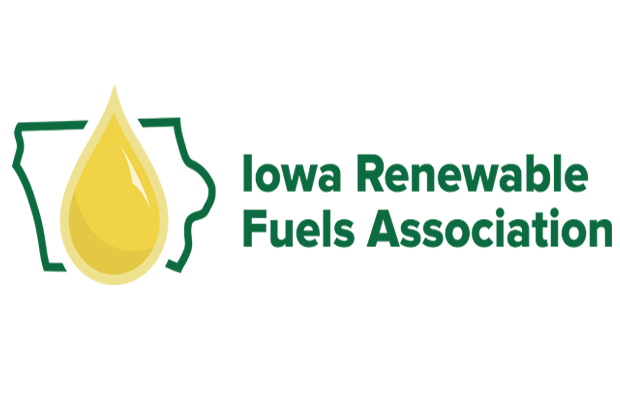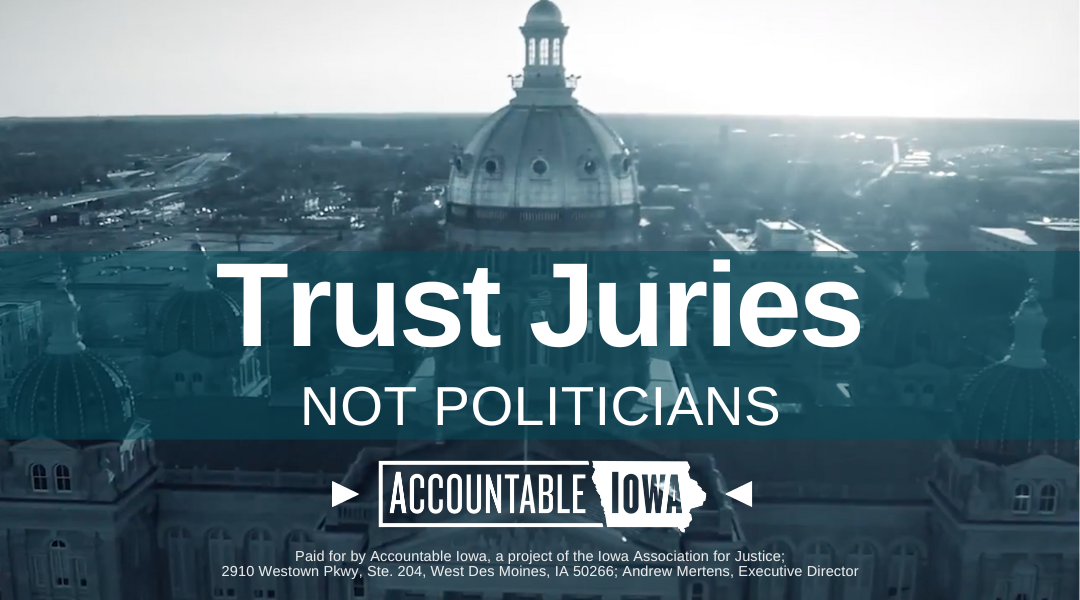Yesterday, EPA released the long-awaited draft rule to set Renewable Fuel Standard (RFS) blending levels for 2021 and 2022. In an unprecedented move, the EPA also proposed to reopen and revise downward the 2020 RFS rule that was finalized in December of 2019. The EPA further announced it was finally following through on its decision to rein in RFS refinery exemptions, while the USDA announced long-delayed COVID relief funding for biofuels producers that had been appropriated roughly one year ago.
Responding to the announcements, the Iowa Renewable Fuels Association (IRFA) noted that at best the RFS proposal is a missed opportunity to lower fuel prices and carbon emissions.
“The proposed rule from the Biden EPA falls woefully short of any attempt to leverage domestic biofuels to help lower fuel prices and carbon emissions,” stated IRFA Executive Director Monte Shaw. “We also have serious concerns it likely violates the RFS law, especially with regard to the 2020 actions. Why on Earth should the United States be asking OPEC for more oil and releasing our strategic petroleum reserves while at the same time proposing to undermine the one and only law on the federal books that seeks to expand domestic fuel supplies that reduce carbon emissions. We urge President Biden to step in and provide a course correction to his EPA in order to realign this proposed rule with his commitments to Iowa voters.”
Refinery Exemption Requests/COVID Assistance Funding
Although separate issues, the Biden Administration also announced the long-delayed $700 million in COVID relief funding for biofuels producers that had been appropriated roughly one year ago and the denial of 65 RFS refinery exemption requests that had been pending since Biden took office. USDA further announced they would soon be taking steps to make another $100 million available for higher-blend biofuels infrastructure.
“We do want to say a strong thank you for the COVID relief funding announced today and for the Biden EPA stepping up to begin applying the 10th Circuit Court ruling to all refinery exemption determinations,” stated Shaw. “Having said that, I’d be lying if I didn’t acknowledge the frustration I’ve heard out here of having to wait for these announcements that could have come in March just so the Biden EPA would have a spoonful of sugar to try to help the proposed RVO demand destruction go down. These disparate actions are not tied to one another and should stand on their own merits.”
Ethanol Blend Levels Reduced
While the proposed 2022 conventional biofuels blend level corresponds with the statutory 15 billion gallons, the proposed rule sets the 2021 conventional level – traditionally filled by cornstarch-based ethanol – at 13.3 billion gallons, 1.7 billion gallons below the level set by Congress. The proposed rule also takes the unprecedented step of reopening the finalized RFS rule from 2020 to lower the conventional blend level by 2.5 billion gallons, setting it at 12.5 billion gallons.
“The Biden EPA’s proposal to reopen the finalized 2020 rule is ill conceived, illogical, and, we believe, illegal,” stated Shaw. “The EPA has long maintained it does not have the authority to reopen a final RVO rule and we agree. Further, the self-correction mechanisms in the RFS have already adjusted the biofuels requirement for 2020 down to account for COVID-related reduced gasoline use. Adjusting the 2020 levels down further is biofuel demand destruction pure and simple.
“Further, the 2021 number was reduced well below actual blending. That’s unfathomable and, if allowed to stand, would blow apart the many commitments President Biden made to Iowa voters when running for president. We have not forgotten that Biden said the RFS ‘marks our bond with our farmers and our commitment to a thriving rural economy.’ We urge President Biden to ensure the final rule lives up to his promise.”
2016 Remand Gallons
The Biden EPA is proposing a separate rule to address the D.C. Circuit Court case where the Court found the Obama EPA illegally reduced the 2016 conventional blend level by 500 million gallons and “remanded” the case back to EPA to restore those gallons. The EPA is proposing adding half of those remanded gallons to the 2022 RFS level and says it will do the other half in 2023.
“IRFA has been calling for this for over four years,” stated Shaw. “This is a positive step forward and we want to give credit to the Biden EPA for taking it, especially after four years of intransigence on this issue from the Trump EPA.”
Refinery Exemption Restoration Removed from 2020 RFS Equation
The reopened 2020 rule was not only reduced, but a hard-fought victory for biofuels supporters was removed, further destroying demand. After years of abusing the RFS refinery exemption process, former President Trump, under pressure from Congress and Governors, agreed to account for refinery exemptions when setting the RFS levels. Today’s proposal would remove the three-year rolling average of past exemptions that was finalized as part of the 2020 rule.
“This industry endured four years of illegal demand destruction through the abuse of refinery waivers during the previous administration,” stated Shaw. “Even former President Trump finally agreed it was necessary to repair this harm. After criticizing the Trump era refinery exemptions, it’s hard to understand why the Biden EPA would seek to reverse time and remove the very provision designed to undo the damage. It feels like an unnecessary gut punch that will destroy 770 million gallons of future biofuel blending.”
Biomass-based Diesel and Advanced Biofuels
There was better news for advanced biofuels producers. The proposed rule increases the biomass-based diesel category and advanced biofuel category to 2.76 billion gallons and 5.77 billion gallons respectively for 2022.
“The RFS is supposed to help expand the biofuel market,” stated Shaw. “We appreciate the proposed rule recognizes the growth occurring in the biodiesel and renewable diesel markets. We need to ensure the final rule keeps up with the increased production capacity that is coming online.”
Lower Past RFS Levels Mean Future Demand Destruction
If the dramatically lower RFS levels proposed for 2020 and 2021 are finalized, fewer RFS blending credits, known as RINs, will be retired for compliance. Therefore, the past numbers have a direct and powerful impact on actual biofuel blending going forward.
“Anyone saying that changes to the 2020 rule or the 2021 numbers don’t matter because the blending has already occurred is either trying to mislead you or they don’t have a clue how the RFS works,” stated Shaw. “When the 2020 number is lowered and the 2021 number is set below the statutory requirement, there are RFS credits that do not have to be turned in to the EPA for compliance in those years. Those RFS credits live on and can be used for future compliance in lieu of blending actual physical biofuel gallons.”
















